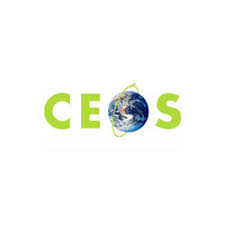AOGEO is collaborating with the Regional Center for Space Science and Technology Education in Asia and the Pacific (RCSSTEAP) to offer valuable scholarship opportunities. Through this initiative, 5–10 outstanding international students from AOGEO Member countries will receive support in securing scholarships to pursue advanced degrees in space science and technology. AOGEO encourage colleagues to recommend exceptional students and share this opportunity in their networks.
All applicants must submit their application on both, Chinese Government Scholarship Information System (https://studyinchina.csc.edu.cn) and Beihang International Student Online Application System (https://admission.buaa.edu.cn). When submitting applications, please kindly copy the China GEO Secretariat (geosec-china@cstec.org.cn) who will assist in the enrolment and admission process. Read more here.
Programme Information AOGEO is looking for talented students eager to advance their studies in the following areas:
- Remote Sensing and Geographic Information System (MASTA & DOCSTA Programmes)
- Global Navigation Satellite Systems (MASTA & DOCSTA Programmes)
- Micro-Satellite Technologies (MASTA & DOCSTA Programmes)
- Space Project Management (MASTA Programme)
Eligibility Requirements Applicants must meet the following criteria:
- Comply with the laws and regulations of the People’s Republic of China and Beihang University rules.
- Be a citizen of an AOGEO Member Country other than China.
- Be in a suitable state of health.
- Hold a bachelor’s degree and be under 35 years old when applying for MASTA.
- Hold a master’s degree and be under 40 years old when applying for DOCSTA.
- Have professional experience in the space technology industry or research institutes.
- Possess relevant English proficiency certificates and the ability to take courses in English.
- Have a research background in relevant areas.
Scholarship Information Applicants may apply for the Chinese Government Scholarship (CSC Scholarship) at Beihang University. The full CSC Scholarship covers:
- Tuition fees
- Free university dormitory or accommodation subsidy
- Monthly stipend:
- CNY 3,000/month for MASTA students (2 years)
- CNY 3,500/month for DOCSTA students (4 years)
- Comprehensive medical insurance
- Note: The scholarship does not cover international travel expenses.
Applicants who do not secure the CSC Scholarship may also apply for the Beijing Government Scholarship and Beihang University Scholarship as alternative funding options. Read more here
Application Deadline The deadline for applications for both the MASTA & DOCSTA Programmes and the CSC Scholarship is March 15, 2025.





